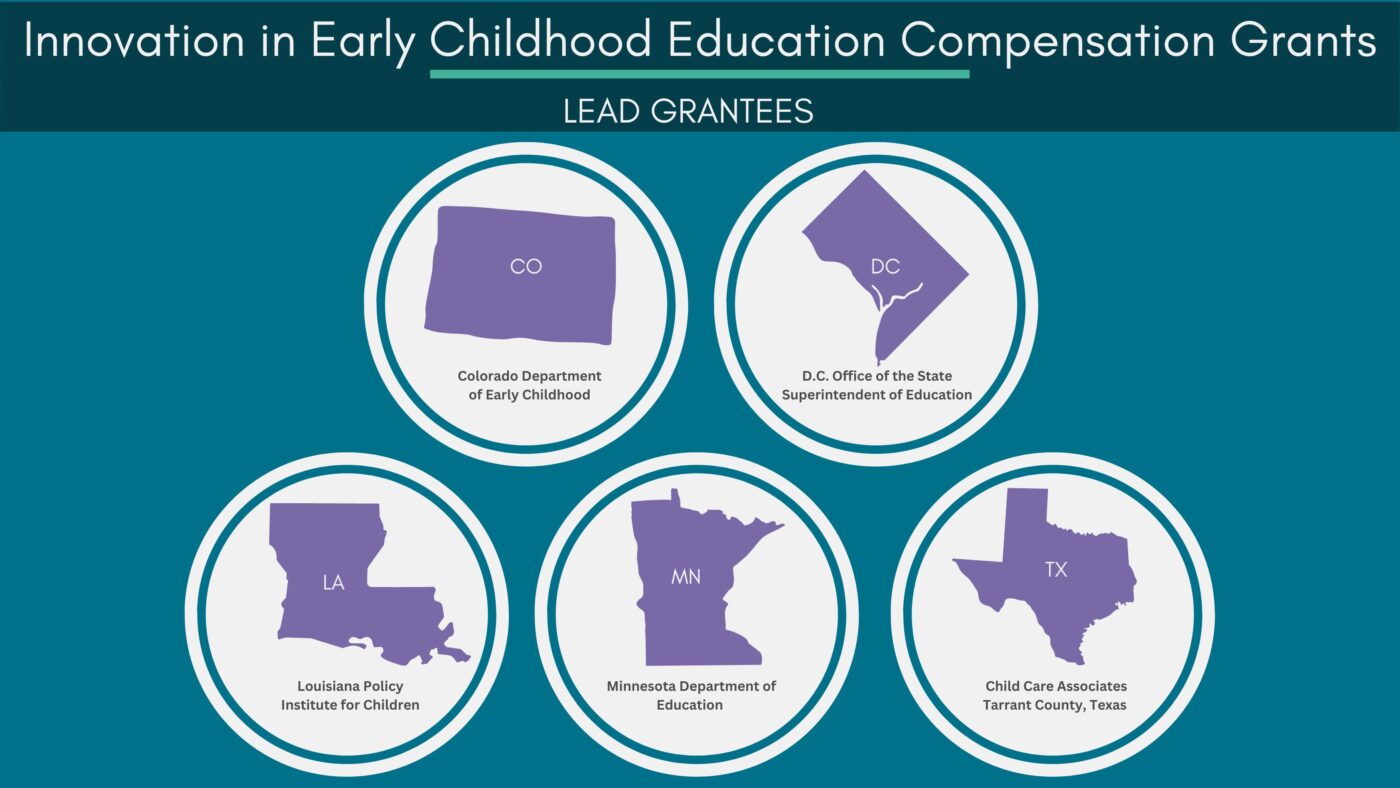Stay Connected
Stay up-to-date with our latest research and insights. We do not share or sell email addresses to outside parties. We will use your email address only to send you relevant content, and you can unsubscribe at any time.
Hear from The Collaborative’s Director, Dr. Ola J. Friday, in our Op-Ed in The Hechinger Report exploring how states are implementing innovative approaches to increase compensation for the early childhood education workforce, including our new grantees in CO, LA, and DC.
Overview
In 2023, the Early Educator Investment Collaborative (The Collaborative) awarded $9M in grants to support public systems innovations in increasing wages and benefits for the ECE workforce. In 2024, two additional partnerships were funded for a total of $11.4M. These grants support partnerships between fiscal agencies and program departments in their efforts to implement activities towards long-term, sustained increases to the salaries and benefits of lead teachers and other ECE professionals. The grantees focus on innovations in financial systems, including new dedicated revenue streams and revamped spending, enhanced data collection and modeling to inform policy, and greater collaboration between agencies in support of improving workforce compensation.
Learn more about our new grantee partnership teams below.
Our Grantees
The Collaborative’s new grantee partnership teams include government agencies and additional partners. The lead grantee partners are listed below, along with full partnership team details and an overview of each team’s grant-funded activities in support of increased and sustainable ECE compensation.

Partnership Team:
Colorado’s grant-funded activities will include:
Partnership Team:
D.C.’s grant-funded activities will include:
Partnership Team:
Louisiana’s grant-funded activities will include:
Partnership Team:
Minnesota’s grant-funded activities will include:
Partnership Team:
Tarrant County, Texas’s grant-funded activities will include:
Community of Practice
Grantees will participate in a Community of Practice (CoP) starting in the second year of the grant term. The CoP will facilitate peer learning, identifying commonalities across projects, collectively problem-solving challenges that arise during implementation, and sharing innovations and lessons learned to wider audiences. A central feature of the CoP will be rapid cycle learning, analysis, and formative process improvements. Challenges encountered and lessons learned will be quickly sourced from the grantees and shared out to wider audiences. We look forward to sharing session details and resources once the CoP has commenced.
Stay up-to-date with our latest research and insights. We do not share or sell email addresses to outside parties. We will use your email address only to send you relevant content, and you can unsubscribe at any time.